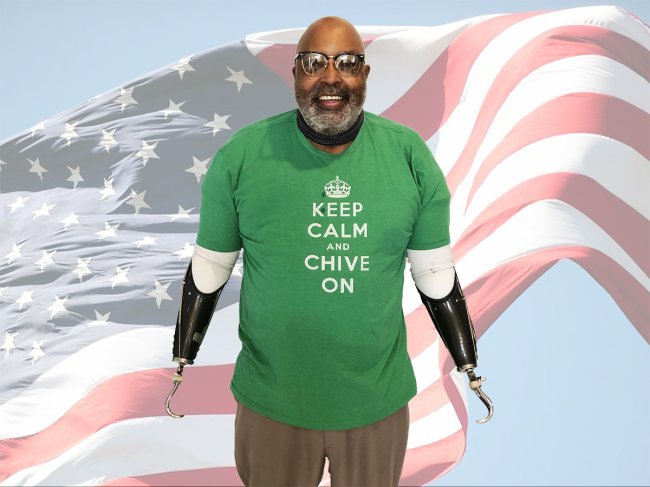In: Awesome, Chive Charities, Humanity, Interesting, Uncategorized
Service over self: A veteran trailblazer paves the way
On August 23, 1977, Sergeant Shirley was performing his military duties as instructed and required when the unthinkable happened. An explosive device detonated prematurely, blowing up in his hands. Jensen was severely injured, losing both forearms, a lung, vision in one eye, and multiple other internal and external injuries. He was 21 years old.
When he awoke after the injury, only one thing was on his mind. Service.
For as long as he can remember, Jensen Shirley has understood the importance of serving. The son of a military veteran and nephew to five other WWII service members, Jensen had the future mapped out in his eyes before the tassel on his high school graduation cap was moved from right to left. He was joining the Army.
The year was 1973 and the United States was still two years out from ending its long and bitter war with Vietnam.
“When I was in high school,” Jensen said, “I told my father I was joining the military and he said, ‘By the time you graduate, you’ll still end up going to Vietnam.’ And he asked me what I thought about that. I told him, ‘No one wants to go, but you all served and sacrificed, and now is our time to serve and sacrifice.’”
“It’s not a question of being right or wrong on the war question, or whether we should or shouldn’t have been there — we were already there. We were asked to serve, we were asked to go, and that was it.”






